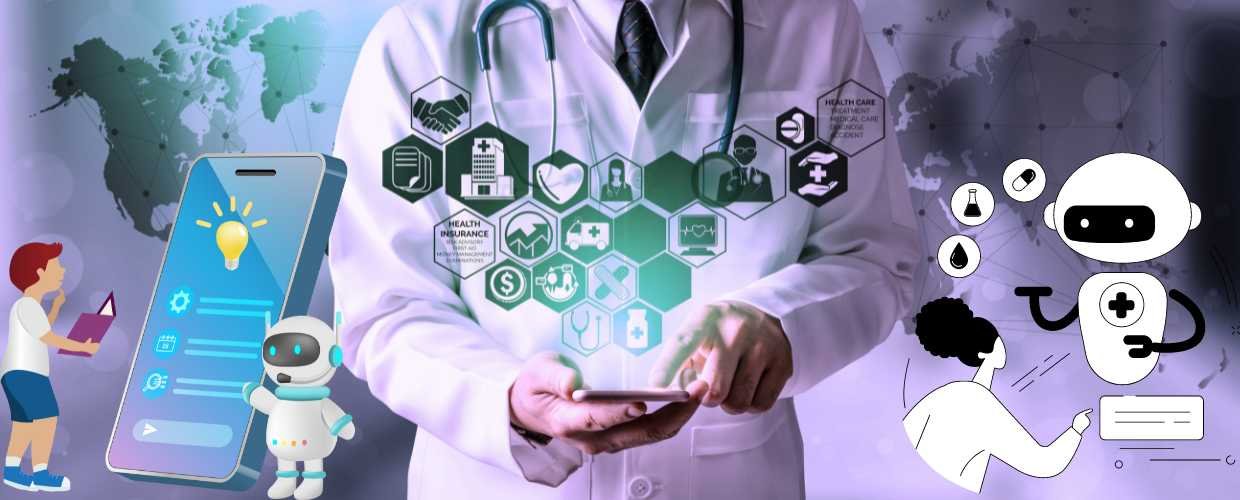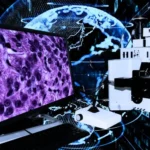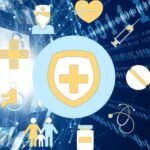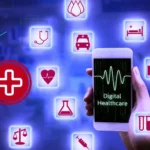In the age of rapid technological advancement, the healthcare sector is undergoing a transformational shift driven by digital solutions. These innovations, from telemedicine to AI-powered diagnostics, reshape patient care, improve efficiency, and expand access to medical services. This article delves into the dynamic trends in digital healthcare solutions, revolutionizing how we experience medical care.
Telemedicine: Bridging Gaps and Expanding Access
Telemedicine has emerged as a game-changer, allowing patients to consult professionals remotely. With virtual appointments and remote monitoring, geographical barriers are dismantled, enabling people to access medical expertise regardless of location. The growing adoption of telemedicine is redefining patient-doctor interactions and shaping the future of healthcare delivery.
Remote Monitoring and Wearables
Telemedicine isn’t limited to consultations; it extends to continuous monitoring through wearable devices. These devices track vital signs and health metrics, transmitting real-time data to providers. This proactive approach enables early intervention, particularly for chronic conditions, and empowers patients to take charge of their health through personalized insights provided by these digital companions.
Improved Access to Specialized Care
Telemedicine allows patients to connect with specialized doctors, no matter where they are. It is especially beneficial for those in remote areas lacking technical medical facilities. From dermatology to mental health, telemedicine enables patients to receive timely consultations and expert advice, bridging gaps in access to specialized care.
AI-Powered Diagnostics: Precision and Efficiency
Medical science has been constantly advancing, and with the advent of Artificial Intelligence, healthcare diagnostics has taken a giant leap forward. AI algorithms have become indispensable tools for professionals, helping them analyze medical images, detect anomalies, and accurately predict disease risks.
The ability of AI to process vast amounts of data in real-time has enabled healthcare providers to enhance the speed and precision of diagnoses, saving valuable time and resources. The insights provided by AI-powered tools have empowered professionals to make informed decisions based on data-driven insights, leading to better patient outcomes and improved quality of care.
Early Disease Detection
AI-driven diagnostics excel in early disease detection. By analyzing vast datasets, AI algorithms identify subtle patterns indicative of diseases in their nascent stages. This early detection enables timely interventions, potentially improving patient outcomes and decreasing costs associated with treating advanced-stage conditions.
Personalized Treatment Plans
AI-powered diagnostics enable the creation of personalized treatment plans. By analyzing a patient’s medical history, genetics, and lifestyle, AI algorithms can recommend tailored interventions that maximize the likelihood of successful outcomes. This shift towards precision medicine ensures that treatments are targeted, minimizing side effects and improving overall patient satisfaction.
Electronic Health Records: Streamlining Patient Information
Digital solutions in healthcare extend to Electronic Health Records (EHRs), which replace traditional paper records. EHRs centralize patient information, providing healthcare providers with a comprehensive view of a patient’s medical history, medications, and test results—this streamlines team communication and coordination, resulting in more efficient and collaborative care delivery.
Interoperability and Data Exchange
One critical benefit of EHRs is interoperability—the ability to exchange patient data seamlessly across different healthcare systems. This ensures that all providers involved in a patient’s care have access to the most up-to-date information, reducing redundant tests and improving care coordination for better patient outcomes.
Patient Engagement and Empowerment
EHRs also empower patients to engage more actively in their healthcare journeys. Patients can access their medical records, track their health metrics, schedule appointments, and communicate with their providers through patient portals. This increased engagement fosters a collaborative approach to healthcare and encourages patients to manage their well-being actively.
Conclusion
Integrating digital solutions in healthcare is reshaping the industry, enhancing patient care, and optimizing medical processes. Telemedicine’s ability to bridge geographical barriers, AI-powered diagnostics’ precision, and stream patient information through EHRs contribute to a more efficient and patient-centric healthcare ecosystem. As these trends evolve, healthcare will become increasingly personalized, accessible, and responsive, improving patients’ lives and transforming how healthcare is delivered and experienced.












